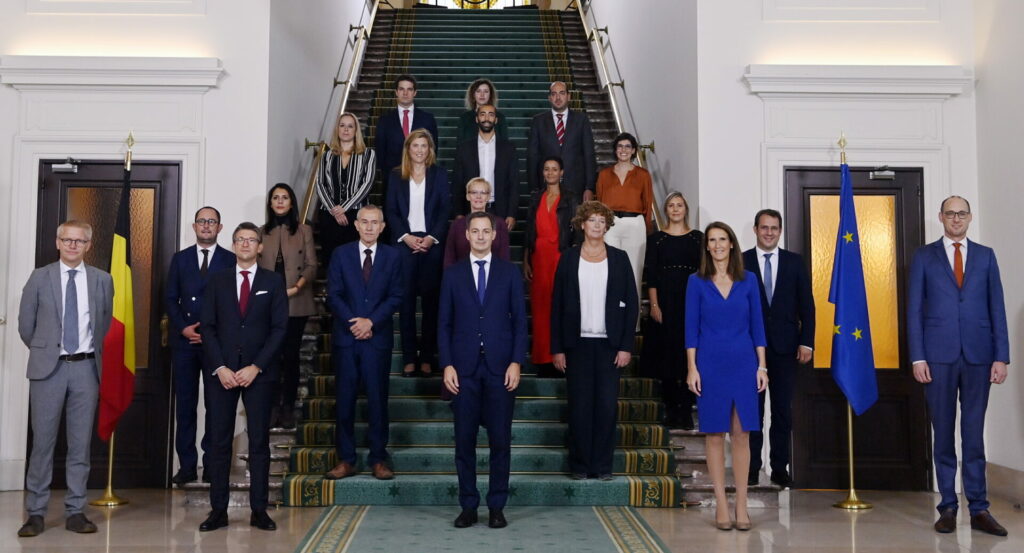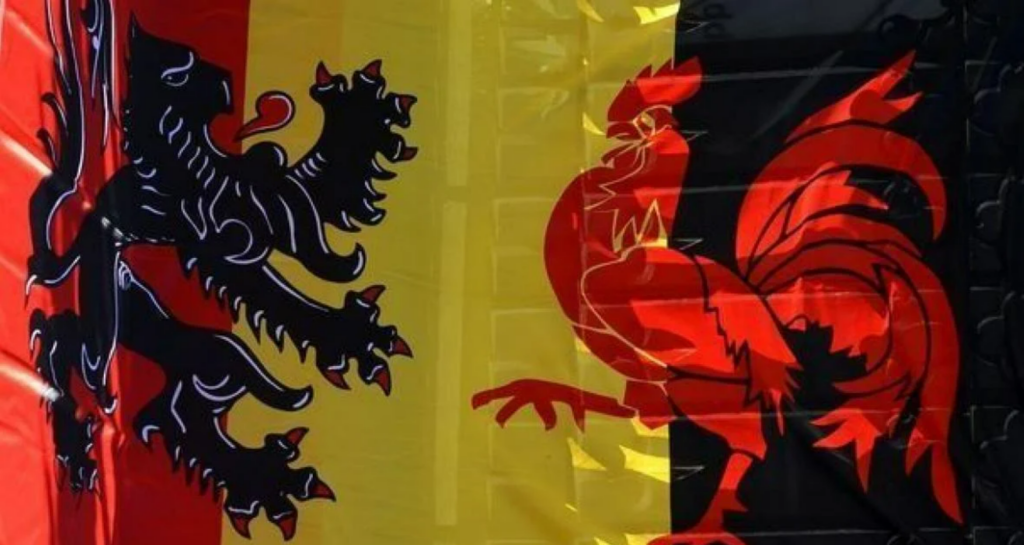To many, Belgium's fractured politics may seem impenetrable. Even those who have lived here all their lives can get lost on the intricacies of regional competencies, advising committees and federal legislators. But a basic understanding of the tangle of governments that make up the Belgian political puzzle gives an insight into what makes this peculiar country tick.
While Belgium was formed as a unitary state in 1830, it evolved into a federal structure with three regions and three communities, each with its own autonomous powers.
This largely took place over the course of five state reforms between 1970 and 2001. A sixth state reform also came about in 2012, but this did not change Belgium's structure.
As a federal nation, Belgium is divided into different smaller states. As such, power is not centralised in one overarching government but distributed over smaller semi-autonomous states. In that sense, Belgium's government structure is similar to that of the United States, where each state can set its own rules.
Compromis à la belge
As Flanders wanted to make its own decisions about language and culture while Wallonia wanted more sway over its own economy, the (re)distribution of powers in 1980 was a true compromis à la belge that divided the country in two separate ways. Geographically, these two lines of division separate the Germanic and Latin cultures, effectively cutting Belgium in half at the language border.
The first division largely comes down to language differences and is the reason the three communities were created. In addition to linguistic matters, the communities also deal with everything related to persons and more broadly, everything cultural (ie. the bonds that unite population groups). These governments make decisions on the so-called "soft" matters within their territory: education, health and welfare, culture, languages and sports.
The second line of division was historically inspired by economic interests as the different territories sought more autonomy, resulting in the creation of three regions to deal with so-called "hard" matters: economy, employment, urban planning, mobility, infrastructure, environment and housing.
While the regions were created mostly according to geographical locations, the communities are language-based. That is why, for example, the German-speaking municipalities of Belgium are part of the Walloon Region, but not of the French-speaking Community.
Normally this would result in Belgium, with its roughly 12 million inhabitants, having seven governments: one for each of the three regions, one for each of the three communities and a federal one. However, as the Flemish Region and the Flemish Community decided to merge their parliaments and governments as soon as they were created, Belgium "only" has six governments.
Here is an overview of what they look like and what they do.
The Federal Government
Belgium's Federal Government and Parliament make decisions on matters that affect the entire territory of the country, such as safety, social security, public health and foreign affairs.
Taking into account Belgium's deep decentralisation and linguistic divide, the formation of the government – consisting of political parties and MPs from all territories – is usually a difficult task. So difficult, in fact, that Belgium's failure to form this government has repeatedly made headlines across the world.
This first happened in 2010, when Belgium set the world record for the longest post-election period without a government (541 days), and again in October 2020 when the country broke its own record after the previous government collapsed in December 2018 – eventually having been without a government for 652 days.

Belgium's Federal Government as sworn in on 1 October 2020. Credit: Belga/Eric Lalmand
Due to Belgium's divide, this government must consist of as many Dutch-speaking as French-speaking members, with a possible exception for the Prime Minister. In this case, a 20-member Federal Government was sworn in on 1 October 2020, made up of 14 ministers and five secretaries of state (10 Francophone, 9 Dutch-speaking), plus a new Prime Minister in Alexander De Croo (who is a native Dutch speaker).
This government was also the first in Belgium with a 50/50 balance between men and women. Due to internal changes since its formation, the scales have now tipped further in favour of women as Sammy Mahdi (initially appointed as State Secretary for Asylum and Migration) was later elected to become leader of the Flemish Christian democrat CD&V party. Consequently, he handed over his competencies to his (female) chief of cabinet, Nicole de Moor.
The current Federal Government consists of seven parties and is led by Prime Minister Alexander De Croo, a member of the Flemish liberal Open VLD party. It is often nicknamed the "Vivaldi" coalition in the Belgian press as its four components are likened to the composer’s Four Seasons concerto: red for socialists PS and Vooruit, blue for liberals MR and Open VLD, green for ecologists Ecolo and Groen, and orange for Christian democrats CD&V.
Flanders (Flemish Region and Flemish Community)
As stated, the powers of the Flemish Community and the Flemish Region are exercised by the same Flemish parliament and government.
In order not to increase the number of MPs excessively, the Flemish Region and the Flemish Community were merged immediately after they were founded in 1980. Due to this merger, there are no separate services, no administrative councils and no sub-governments and the territory is usually simply referred to by the umbrella term "Flanders."
The Flemish parliament consists of 124 MPs, 118 of which are directly elected in Flanders. But since the Brussels-Capital Region also has a Dutch-speaking part, six MPs living in Brussels must be directly elected for the Flemish Parliament by the Dutch-speaking voters of Brussels.
The current Flemish government consists of nine ministers, led by Minister-President Jan Jambon of the Flemish rightwing N-VA party.
The Walloon Region
The Walloon parliament consists of 75 MPs (49 fewer than the Flemish one) who are elected directly for a term of five years. These 75 MPs, however, not only sit on the Walloon parliament but also on the parliament of the French Community.
The current Walloon government consists of eight ministers, led by Minister-President Elio di Rupo of the Francophone socialist PS party. As it concerns a regional government, it deals with Wallonia's so-called "hard" matters: economy, employment, urban planning, mobility, infrastructure, environment and housing.
The Brussels-Capital Region
The parliament and government of the Brussels-Capital Region were not established until the 1988-1989 state reform. As with most things in Belgium, language plays a major role in the capital, which is why parity is crucial: the government is composed of four ministers (two French-speaking and two Dutch-speaking), three state secretaries (at least one of whom must be Dutch-speaking) and the Minister-President.
Both the Flemish and French Communities exercise their powers on the territory of Brussels, each through its own separate "mini-parliament" in the Brussels parliament: the Dutch and French community committees, which are composed of representatives of the communities in Brussels.
Additionally, there is also a Joint Community Commission (Cocom) for matters not exclusively covered by the other community committees. During the Covid-19 pandemic, for example, the health measures and restrictions were decided by this commission. This has led to sometimes disjointed policies.
As in Flanders and Wallonia, these communities are responsible for education, cultural and person-related matters – exclusively for those speaking their language. This explains why Dutch-speaking and French-speaking schools in Brussels sometimes follow different rules or have different starting dates from now on.
The French-speaking Community
Within Belgium, the name "French Community" refers to the Francophone residents of Wallonia and the Brussels-Capital Region and not to French people residing in Belgium. However, the French Community is often referred to in English as 'the French-speaking Community' to avoid confusion (similar to the German-speaking Community).
In 2011, the French Community of Belgium decided to refer to itself as the "Wallonia-Brussels Federation" but this title is only used for communications purposes as the Belgian constitution stipulates that Belgium has three communities, including the French Community.
As a community government, the French-speaking Community has authority in the "soft" fields of education, culture, sport, youth and scientific research in the Francophone part of the country.
Related News
- The basics of Belgium's government formation
- 10 men, 10 women: Belgium's new government is more female than ever
- 'Non-issue': Belgium's Petra De Sutter is first openly transgender minister in Europe
The community government exercises its powers in the Walloon provinces (except the German-speaking communes) and in Brussels. Its Parliament consists of 94 MPs: 75 elected to the Walloon Parliament (mentioned above) and 19 French-speaking MPs of the Parliament of Brussels-Capital Region.
The current Government of the French Community consists of five ministers, led by Minister-President Pierre-Yves Jeholet of the French-speaking liberal MR party.
The German-speaking Community
The German-speaking Community is the smallest community and only has power over the nine municipalities in the far east of Belgium's Liège province, close to the border with Germany. The Community's Parliament consists of 25 directly-elected MPs, one of whom also has to sit on the Federal Senate.
Similar to Belgium's French-speaking Community, the German-speaking Community changed its name to avoid confusion: since 2017, it uses "East Belgium" (Ostbelgien) to refer to itself in its communications. However, this is not an official name because the Belgian Constitution still only mentions the "German-speaking Community."
The current government of the German-speaking Community consists of four ministers, led by Minister-President Oliver Paasch of the Pro Deutschsprachige Gemeinschaft (ProDG) party.


